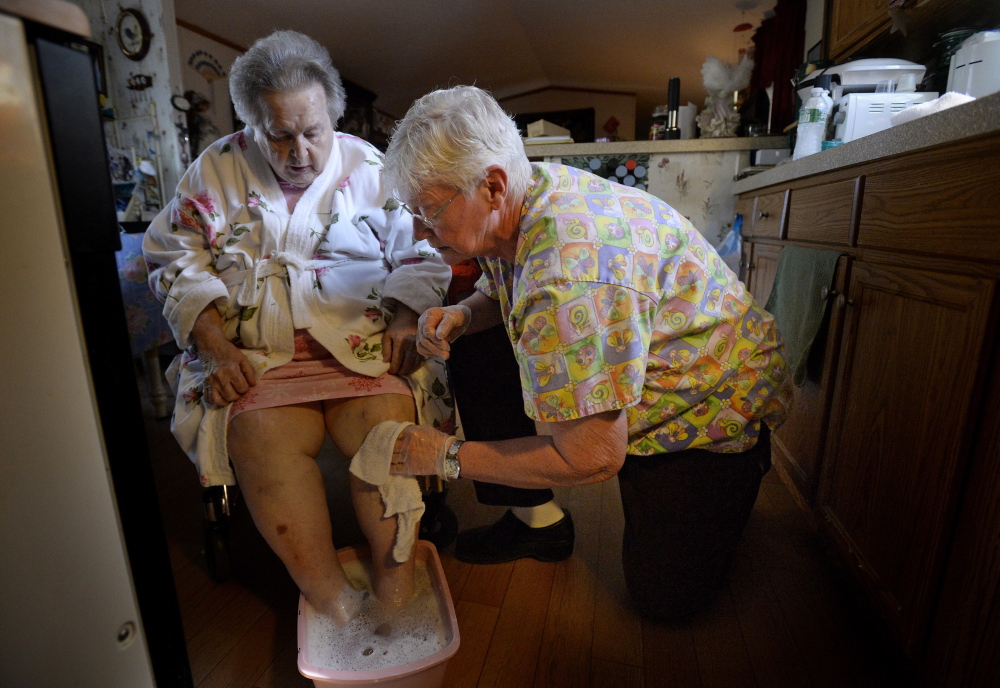By assisting elderly Mainers, home care workers are helping seniors stay out of assisted-living and nursing facilities – a more cost-effective alternative, and one that more and more seniors say they prefer.
But at about $9.50 an hour, with no benefits, Maine home care workers’ compensation hasn’t kept up with the increased demand for their services. Turnover in the field is high, and the waiting list for publicly funded care is long.
Given the benefits – both financial and personal – of home care, and Maine’s big and burgeoning population of residents 65 and over, it’s past time for the state to invest in home care services. The money we spend now will pay off down the road for both Maine’s seniors and Maine’s taxpayers.
Home care agencies want to pay more and offer benefits but can’t because of low state reimbursement rates. Indeed, Maine’s reimbursement rate for home and personal care services has been at $15 an hour since 2005.
The head of one nonprofit agency said he’d need a $26 reimbursement rate in order to pay his employees $15 an hour and provide health insurance and vacation/sick time. As a Maine Sunday Telegram report noted, this would boost the average monthly cost for personal services from $558 to $967 per MaineCare recipient. But that’s still a bargain compared to what the program pays per month for each recipient who gets nursing home care: $4,150.
Home care workers have a high risk of on-the-job injury. They can hurt themselves when they lift and move clients, often without assistance. They also can face emotional stress, when clients’ frustration at their own physical limitations causes them to lash out at their caregivers.
Like other people in low-paying professions, however, it’s hard for those who provide home care to fund their own health care. This lack of coverage makes it twice as likely that a home care worker will look for a job in a different field, according to a study done in Maine in 2010. Accepting federal dollars to cover the uninsured working poor could have made a big difference, but the effort was defeated Thursday when legislators failed to override Gov. LePage’s fourth and final veto of MaineCare eligibility expansion.
Maine lawmakers have made funding for nursing homes and assisted-living facilities a priority recently, though it’s less expensive to care for someone at home than in an institution. Legislators have approved a total of $14 million over the next three years to boost nursing home reimbursements. Granted, this appropriation is long overdue. But home care is also underfunded, and no one asked for additional funding for these services last session. (Lawmakers have said they’ll focus on home care access next session.)
Maine should make sure that state budgeting reflects the critical role of home care in the long-term care spectrum. Home care services are among the most important work there is, and if we want it to be done well, dedicated home care workers should be compensated at a level that reflects their commitment and skills.
Send questions/comments to the editors.



Success. Please wait for the page to reload. If the page does not reload within 5 seconds, please refresh the page.
Enter your email and password to access comments.
Hi, to comment on stories you must . This profile is in addition to your subscription and website login.
Already have a commenting profile? .
Invalid username/password.
Please check your email to confirm and complete your registration.
Only subscribers are eligible to post comments. Please subscribe or login first for digital access. Here’s why.
Use the form below to reset your password. When you've submitted your account email, we will send an email with a reset code.